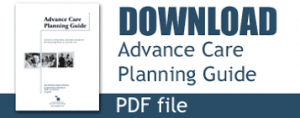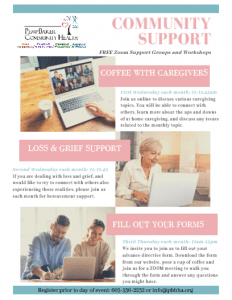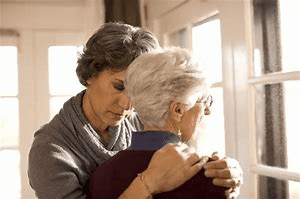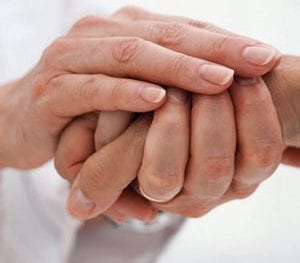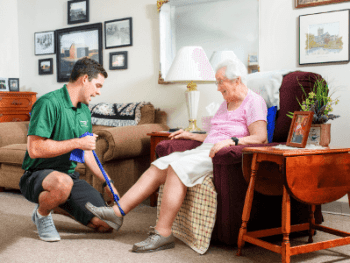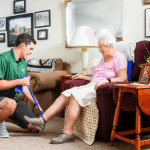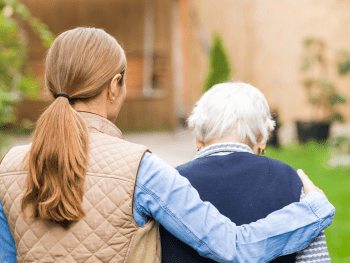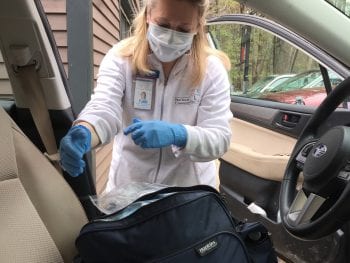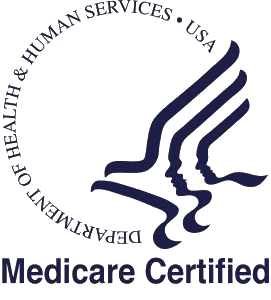Over the past twenty years, several interesting feature films have been produced which explore the significance of Alzheimer’s Disease and its impact on patients and their families and caregivers.
For her performance as Alice Howland in 2014’s “Still Alice”, Julianne Moore received the Academy Award for Best Actress. The film is based on a novel of the same title by Lisa Genova, herself a neuroscientist. The film is the story of Alice Howland, an esteemed professor of linguistics at New York City’s Columbia University. The story takes us from Alice’s first suspicions that something is amiss, through her diagnosis with Early Onset Alzheimer’s Disease, her various losses, and concluding with a touching scene featuring Alice’s free-spirited actress daughter Lydia who has assumed responsibility for her care.
As the story unfolds, we witness Alice and her family confront and come to terms with many of the challenges posed by Alzheimer’s Disease. Alice’s particular form of the disease is called “familial”, meaning that in her family line, there have already been two or more relatives with the malady. Since Alice is only fifty, her diagnosis is termed “early onset”. The question is raised as to whether Alice’s three grown children want to be tested to determine if they are susceptible to the illness. Daughter Lydia chooses not to. Son Tom and the elder daughter Anna do want to be tested. Anna is pregnant. Though she is positive for the test, she follows through in giving birth to her twins. This complex of factors are among several story lines in this captivating film. Others include: Alice’s secret preparations to end her own life when her memory loss and functioning progress to a certain point, her lingering desire to make a contribution to others living with the same disease, and family decisions around Alice’s care in conflict with the reality that “Life goes on”.  Through all this, we see Alice’s progressive deterioration through the loss of her teaching career, her advancing inability to recognize those closest to her, disorientation within her own home, an interrupted suicide attempt, her husband’s decision to relocate in favor of his professional betterment, and the loving self-sacrifice of Lydia to care for her. Despite the wasting away of the many qualities that made her the person she had been, she remains “still Alice” in a brief moment of recall when she is able to identify the importance of love.
Through all this, we see Alice’s progressive deterioration through the loss of her teaching career, her advancing inability to recognize those closest to her, disorientation within her own home, an interrupted suicide attempt, her husband’s decision to relocate in favor of his professional betterment, and the loving self-sacrifice of Lydia to care for her. Despite the wasting away of the many qualities that made her the person she had been, she remains “still Alice” in a brief moment of recall when she is able to identify the importance of love.
In preparation for her role as Alice, Julianne Moore did extensive research about Alzheimer’s Disease. Sadly, it also fell to her to dedicate her reception of the Academy Award to the memory of Richard Glatzer, one of the two writers and directors of the movie. He died of ALS (“Lou Gehrig’s Disease) shortly before the awards ceremony. “Still Alice” can be accessed on You Tube, Hulu, and Amazon Prime.
Closer to our time, the winner of the 2020 Academy Award for Best Actor was Sir Anthony Hopkins for his performance as Anthony in “The Father”. Some years ago, Hopkins also won the Oscar in that same category as the infamous Hannibal Lechter in “The Silence of the Lambs”. “The Father” is based on a French stage play by Florian Zeller who assisted in the adaptation and direction of the work for the screen.  “The Father” features Olivia Colman (currently seen as Queen Elizabeth II in Seasons Three and Four of the series “The Crown”). For her portrayal as Anne, Anthony’s daughter, Colman was nominated for the Academy Award for Best Supporting Actress.
“The Father” features Olivia Colman (currently seen as Queen Elizabeth II in Seasons Three and Four of the series “The Crown”). For her portrayal as Anne, Anthony’s daughter, Colman was nominated for the Academy Award for Best Supporting Actress.
Spoiler alert! “The Father” immerses us within the thoughts, perceptions, and reactions of a man whose mind is unraveling because of dementia. There are repeated events with some changes in character and setting that can be quite confusing and disconcerting until we perceive that this is purposefully done to draw us into Anthony’s experience. It ushers us into the insecurity, denial, resistance, fear, anxiety, anger, and fragility of a man with dementia.
“The Father” begins with a confrontational conversation between Anne and Anthony who has become oppositional toward his paid caregiver. We are immediately plunged into what becomes a slow-moving but steadily mounting storm system of suspicion, stubbornness, refusal, lapses of memory, disorientation, and eventual breakdown. The persistent pace of the story’s development raises the sadly familiar challenges of living with and caring for someone with this illness. 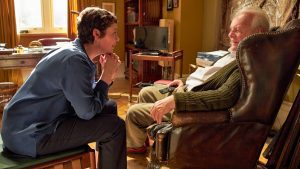 What to do about emerging potentially aggressive behaviors? How to live with the strain imposed on other intimate relationships? When does one arrive at the point of surrendering caregiving to a corps of providers in a setting that may better manage the patient’s needs? Hopkins’ masterful performance in this intense drama can be seen on You Tube, Amazon Prime, and Vudu.
What to do about emerging potentially aggressive behaviors? How to live with the strain imposed on other intimate relationships? When does one arrive at the point of surrendering caregiving to a corps of providers in a setting that may better manage the patient’s needs? Hopkins’ masterful performance in this intense drama can be seen on You Tube, Amazon Prime, and Vudu.
Obviously, films of this genre do not lend themselves to a family movie night of coziness while sitting in front of the flat screen with popcorn at hand. They are, perhaps, most useful as a learning experience for mature adults who may be starting to consider addressing some of the serious “What if…” questions emerging in their lives as they age. The value of these movies as “family drama” will have served a good purpose if they broaden out into thoughtful and serious discussions and actual planning and preparation that might avert being overwhelmed in a later future time of critical need.
Pemi-Baker Community Health offers community support groups for Caregivers and families living with dementia as well as one on one meetings for help filling out those all-important forms for end of life wishes and care. We encourage you to contact us with questions. PBCH is located at 101 Boulder Point Drive, Plymouth, NH. To contact us please call: 603-536-2232 or email: info@pbhha.org Visit our website: www.pbhha.org and like our Facebook Page: @PBCH4
With over 50 years of experience, serving clients from 28 towns in central and northern New Hampshire, Pemi-Baker Community Health is committed to creating healthier communities. Services include at-home healthcare (VNA), hospice and palliative care, on-site physical and occupational therapy and aquatic therapy in their 90-degree therapy pool. Providing compassionate care with experienced staff who are trained, certified professionals in the business because of their hearts. In your time of need, we’re right where you need us.
~written by Guy Tillson, MDiv, MA, Hospice Chaplain


 ou and your family members to ask questions and relay concerns. Their focus is on relieving the symptoms and stress of your illness. The goal is to improve quality of life for both the patient and the family. This is done by coordinating the patient’s care as well as providing
ou and your family members to ask questions and relay concerns. Their focus is on relieving the symptoms and stress of your illness. The goal is to improve quality of life for both the patient and the family. This is done by coordinating the patient’s care as well as providing 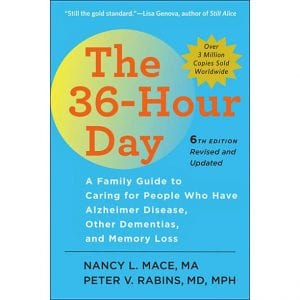 The book is THE 36-HOUR DAY: A Family Guide to Caring for People Who Have Alzheimer Disease, Other Dementias, and Memory Loss. The title itself, as does the book, pulls no punches. Providing ongoing care for a person with dementia is time-consuming, emotionally demanding, stressful, and exhausting, so that one’s days feel like they are longer than they are and packed with too much to do and remember.
The book is THE 36-HOUR DAY: A Family Guide to Caring for People Who Have Alzheimer Disease, Other Dementias, and Memory Loss. The title itself, as does the book, pulls no punches. Providing ongoing care for a person with dementia is time-consuming, emotionally demanding, stressful, and exhausting, so that one’s days feel like they are longer than they are and packed with too much to do and remember.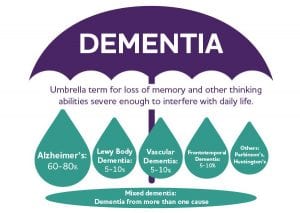 In this introductory section, there is a brief presentation raising the question “What Is Dementia?” The book is careful to explore all sides of the challenges of caring for someone with dementia. The authors really walk alongside the readers/caregivers in taking the first steps toward assuming the responsibility of caregiving. Having read the book, I am hard-pressed to discover any stone that has been left unturned. Let me be quick to say that not all dementia patients end up in nursing homes. Caregiving story endings vary from case to case, very much the result of the many factors both patients and caregivers bring to their own unique circumstances.
In this introductory section, there is a brief presentation raising the question “What Is Dementia?” The book is careful to explore all sides of the challenges of caring for someone with dementia. The authors really walk alongside the readers/caregivers in taking the first steps toward assuming the responsibility of caregiving. Having read the book, I am hard-pressed to discover any stone that has been left unturned. Let me be quick to say that not all dementia patients end up in nursing homes. Caregiving story endings vary from case to case, very much the result of the many factors both patients and caregivers bring to their own unique circumstances.